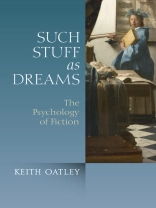Such Stuff as Dreams: The Psychology of Fiction explores how
fiction works in the brains and imagination of both readers and
writers.
* Demonstrates how reading fiction can contribute to a greater
understanding of, and the ability to change, ourselves
* Informed by the latest psychological research which focuses on,
for example, how identification with fictional characters occurs,
and how literature can improve social abilities
* Explores traditional aspects of fiction, including character,
plot, setting, and theme, as well as a number of classic
techniques, such as metaphor, metonymy, defamiliarization, and
cues
* Includes extensive end-notes, which ground the work in
psychological studies
* Features excerpts from fiction which are discussed throughout
the text, including works by William Shakespeare, Jane Austen, Kate
Chopin, Anton Chekhov, James Baldwin, and others
Зміст
Preface.
Acknowledgments.
1 Fiction as dream: Models, world-building, simulation.
2 The space-in-between: Childhood play as the entrance to
fiction.
3 Creativity: Imagined worlds.
4 Character, action, incident: Mental models of people and their
doings.
5 Emotions: Scenes in the imagination.
6 Writing fiction: Cues for the reader.
7 Effects of fiction: Is fiction good for you?
8 Talking about fiction: Interpretation in conversation.
Endnotes.
Bibliography.
Name Index.
Subject Index.
Про автора
Keith Oatley is Professor Emeritus of Cognitive Psychology at the University of Toronto. He is the co-author of Understanding Emotions (Blackwell, 2006), the most widely used textbook on this subject, and has written three works of fiction, including The Case of Emily V. (1993), which won the 1994 Commonwealth Writers’ Prize for Best First Novel.












